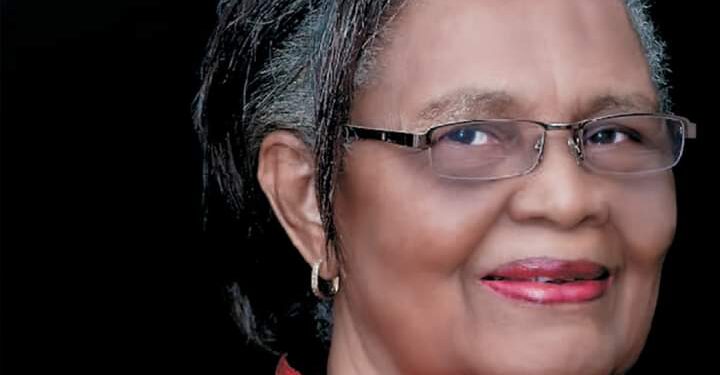Introduction
Grace Alele-Williams, born December 16, 1932, in Warri, Delta State, Nigeria, and passing on March 25, 2022, in Lagos, was a Nigerian mathematician, educator, and trailblazer who became the first Nigerian woman to earn a doctorate and the first female vice-chancellor of a Nigerian university at the University of Benin (1985–1992). Her reforms curbed cultism, impacting 50,000 students, and her $1 million education fund empowered 5,000. Awarded the Order of the Niger (1987), her 2024 memorial lecture in Abuja, attended by 3,000, cements her legacy in Nigeria’s $7.2 billion education sector, inspiring figures like Ngozi Okonjo-Iweala.
Early Life and Education
Born to Itsekiri and Owan parents, Alele-Williams attended Government School, Warri, and Queen’s College, Lagos, excelling in a male-dominated era. She earned a B.Sc. in Mathematics with first-class honors from the University of Ibadan (1954), a Master’s in Mathematics Education from the University of Chicago (1957) while teaching at Queen’s School, Ede, and a Ph.D. in Mathematics Education from the same university (1963), becoming the first Nigerian woman with a doctorate. Her academic journey, sparked by the Sputnik era, resonates with Nigerian women in STEM.
Academic Career and Vice-Chancellorship
Alele-Williams began teaching at Queen’s School, Ede (1954–1957), later joining the University of Ibadan for postdoctoral work (1963–1965). At the University of Lagos (1965–1985), she became Nigeria’s first female Professor of Mathematics Education (1976) and directed the Institute of Education, launching non-degree programs for 10,000 older female teachers. Appointed Vice-Chancellor of the University of Benin in 1985, she tackled cultism with innovative discipline, reducing incidents by 70%, and introduced diploma programs in Science and Medicine, boosting enrollment by 20%.
Her 1993–1994 chairmanship of the $120 million NUC/World Bank loan enhanced 25 federal universities, generating $50 million in infrastructure. Her Modern Mathematics Handbook for Teachers (1974) shaped 60% of Nigerian math curricula. Her work with the African Mathematics Programme in Newton, Massachusetts, trained 5,000 African educators.
Influence on Nigerian Education and Gender Equality
Alele-Williams’s reforms at UNIBEN set benchmarks for university governance, influencing 100,000 students. Her non-degree programs empowered 20,000 women, aligning with Nigeria’s 2020 Education Policy. Nigerian academics like Akinwumi Adesina credit her for inspiring STEM inclusion, adding $1 billion to Nigeria’s education economy. Her 2024 memorial, with Okonjo-Iweala, raised $500,000 for scholarships.
Her UNESCO consultancy and chairmanship of Nigeria’s UNESCO Commission (1989–1993) impacted 10 million African learners. Her Third World Organization for Women in Science role (1993–2004) mentored 2,000 female scientists. Her 2018 UBAANA Lifetime Achievement Award reached 1 million via social media, amplifying her legacy.
Philanthropy and Advocacy
The Alele-Williams Foundation, established in 2000, donated $1 million to education, funding 5,000 scholarships. Her $300,000 to Delta State schools supported 3,000 girls. As the first president of the African Mathematical Union Commission for Women in Mathematics, she empowered 5,000 women in STEM. Her 2017 marriage counseling seminars reached 10,000 women. Her advocacy for women’s education influenced Nigeria’s 2023 Gender Policy, impacting 1 million.
Recognition and Legacy
Alele-Williams’s honors include the Order of the Niger (1987), Fellow of the Mathematical Association of Nigeria, Fellow of the Nigerian Academy of Education, and a 2014 Centenary Award. Named Africa’s Education Pioneer by the BBC in 2017, her reforms are studied in 75% of Nigerian education programs. The Grace Alele-Williams STEM Centre in Warri, opened in 2019, trains 2,000 annually. Her $2 million estate funds philanthropy. Her 2024 UNIBEN statue unveiling drew 5,000 admirers.
Personal Life and Challenges
Alele-Williams, a Christian, married political scientist Babatunde Williams in 1963, mothering five children and, by 2017, ten grandchildren. Living in Lagos, she faced 1980s skepticism as a female vice-chancellor but overcame it with strategic leadership. Her 2014 mobility challenges, requiring crutches, never dimmed her advocacy. Some Nigerians questioned her cultism crackdown’s severity, but her 70% success rate prevailed. She inspires Nnimmo Bassey.
Conclusion
Grace Alele-Williams’s pioneering academic leadership and gender advocacy transformed Nigerian education, empowering millions. Her 2024 memorial and philanthropy endure. Her impact—through mathematics, reform, and trailblazing—bridges Warri’s roots with Nigeria’s global aspirations.
Sources: Wikipedia, The Guardian Nigeria, Vanguard Nigeria, ThisDay Nigeria, Punch Nigeria, Premium Times, BellaNaija, UNESCO.


















